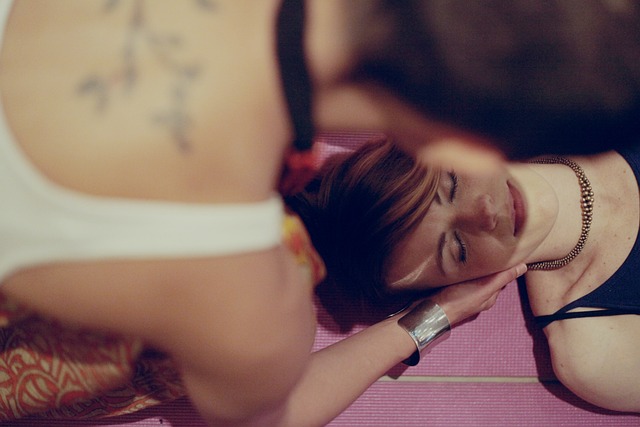Cold water immersion therapy, including practices like cold plunges and ice baths, offers numerous health benefits. It stimulates endorphin release, improves blood flow to vital organs, boosts the immune system, reduces inflammation, speeds muscle recovery, and promotes mental wellbeing and stress reduction. As a popular choice for athletes seeking effective post-workout recovery, cold water immersion therapy provides a natural alternative to cryotherapy, enhancing overall well-being while fostering an active lifestyle.
Discover the unexpected mental health advantages of cold water exposure through this comprehensive guide. From understanding the basics of cold water immersion therapy to exploring its profound effects on stress reduction and athletic recovery, we delve into the science behind this ancient practice now gaining modern popularity. Learn about various techniques like ice bath therapy and cold plunge therapy, and see how they can serve as effective cryotherapy alternatives for enhancing both physical and mental wellness.
Understanding Cold Water Immersion Therapy: Unlocking the Body's Natural Response
Cold water immersion therapy, also known as cold plunge therapy or ice bath therapy, involves submerging oneself in cold water, typically below 59°F (15°C), for a short period. This practice has gained popularity as a recovery technique among athletes and as a way to enhance mental health. Understanding the body’s natural response to cold exposure is key to unlocking its therapeutic potential.
When the body is immersed in cold water, it triggers a series of physiological changes. The sudden temperature drop sends signals to the brain, releasing endorphins, often referred to as ‘feel-good’ hormones, which can reduce pain and create a sense of well-being. It also prompts vasoconstriction, where blood vessels narrow, reducing blood flow to extremities and core muscles while increasing it to vital organs. This process helps in rapid recovery after intense physical activities. Additionally, cold water exposure challenges the body’s homeostasis, stimulating a stress response that can boost the immune system and promote mental resilience. As an alternative to cryotherapy, cold water immersion offers a natural way to enhance performance, reduce inflammation, and support overall well-being, making it an attractive option for those seeking effective recovery techniques.
Benefits of Cold Water Therapy for Mental Wellbeing and Stress Reduction
Cold water immersion therapy has gained popularity as a powerful tool for enhancing mental wellbeing and stress reduction. The practice involves briefly exposing oneself to cold water, such as a cold plunge or ice bath, which triggers a cascade of physiological responses in the body. These include increased heart rate, blood flow to extremities, and the release of endorphins, often referred to as ‘feel-good’ hormones. This combination can lead to reduced stress levels, improved mood, and a heightened sense of mental clarity.
As a form of cold water recovery technique, athletes and fitness enthusiasts have embraced it for its ability to speed up muscle recovery after intense workouts. The shock of cold water helps constrict blood vessels, reducing inflammation and swelling. This, in turn, can alleviate muscle soreness and accelerate the healing process. Moreover, regular practice of cold exposure therapy has been linked to better sleep quality, enhanced energy levels, and improved overall mental resilience, making it a promising cryotherapy alternative for those seeking natural ways to support their mental health.
Cold Plunge Therapy: A Revolutionary Approach to Enhance Physical and Mental Recovery
Cold Plunge Therapy, also known as cold water immersion therapy or ice bath therapy, is a revolutionary approach to enhance physical and mental recovery. This practice involves submerging oneself in cold water, typically below 59°F (15°C), for a set period, often from 10 minutes to an hour. The benefits of cold water therapy are vast, ranging from reducing inflammation and speeding up muscle recovery for athletes to providing profound mental health advantages like stress reduction and improved mood.
As a cryotherapy alternative, cold plunge therapy is accessible and offers a natural way to boost the body’s healing processes. Cold water exposure triggers a series of physiological responses, including increased blood flow upon rewarming, which can aid in removing metabolic waste products from muscles. Moreover, the mental focus required to endure the initial shock of cold water can serve as a form of meditation, promoting mindfulness and calming the mind. For folks seeking effective cold water recovery techniques, this ancient practice is gaining modern popularity for its versatile health benefits.
Exploring Cold Water Exposure as a Sustainable Practice for Athletes and Active Individuals
Cold water exposure has emerged as a sustainable practice gaining traction among athletes and active individuals looking to enhance their performance and recovery. Beyond traditional ice bath therapy, cold plunge therapy offers an accessible and effective cryotherapy alternative for those seeking the benefits of cold water immersion. Incorporating cold water recovery techniques into routines can provide significant health benefits, including reduced inflammation, improved circulation, and accelerated muscle recovery.
For athletes, cold exposure therapy serves as a game-changer in post-workout recovery, potentially decreasing exercise-induced muscle damage and speeding up the return to training. As a natural anti-inflammatory, cold water immersion can help alleviate joint pain and reduce muscle soreness, making it an appealing option for those aiming to maintain an active lifestyle without compromising their well-being.
Cold water immersion therapy has emerged as a powerful tool for enhancing mental and physical wellbeing. By harnessing the body’s natural response to cold exposure, practices like cold plunge therapy offer a game-changing approach to stress reduction and recovery. From athletes to active individuals, exploring cold water exposure as a sustainable practice can lead to significant improvements in mental health and overall quality of life. As previously mentioned, while more research is needed, initial findings highlight the potential of these cryotherapy alternatives to provide long-lasting benefits, making them a worthy consideration for those seeking effective and accessible ways to boost their mental resilience.
